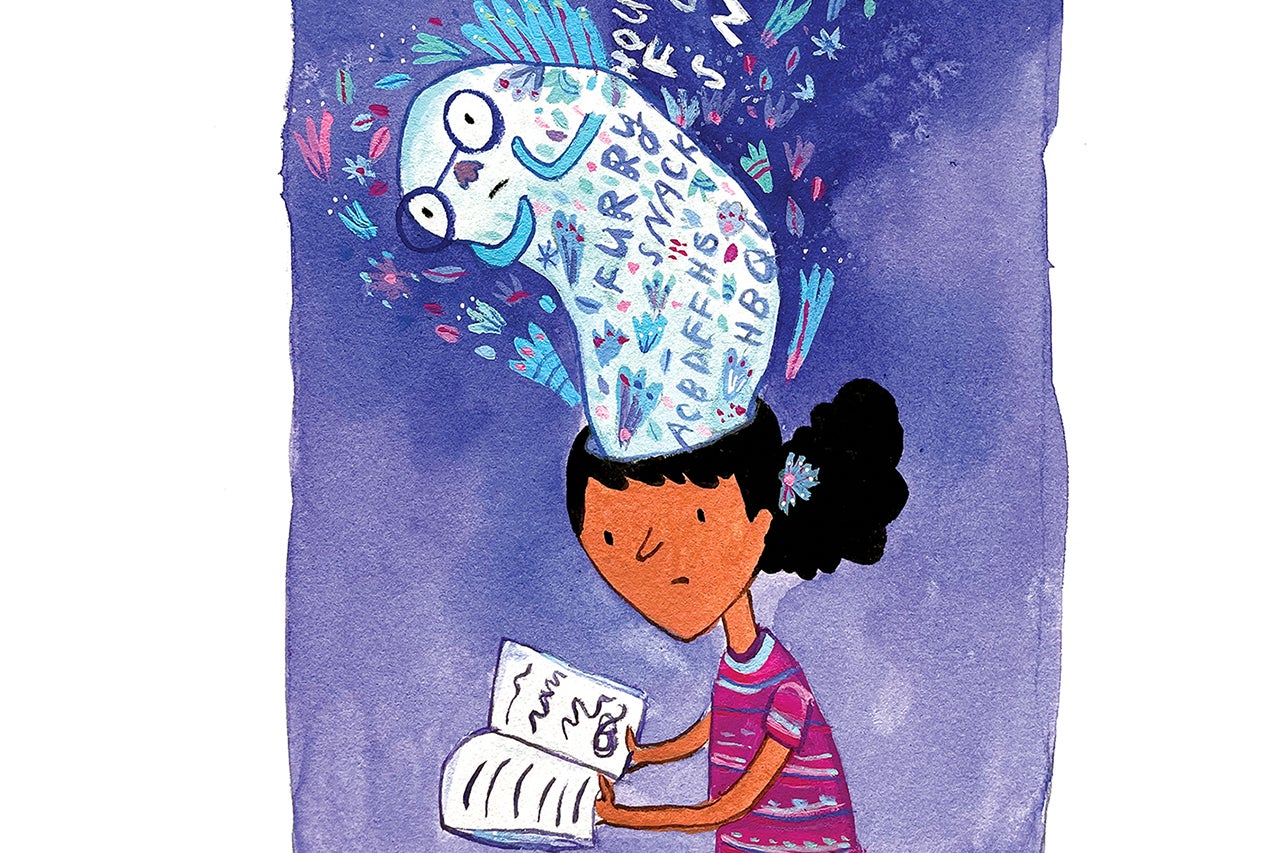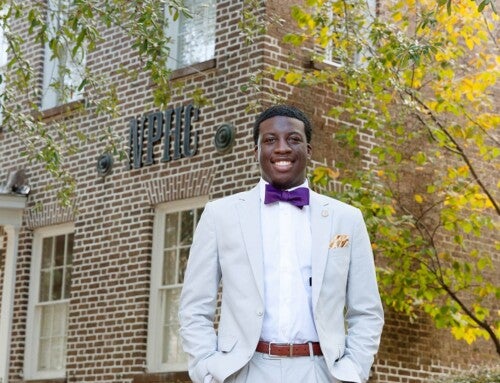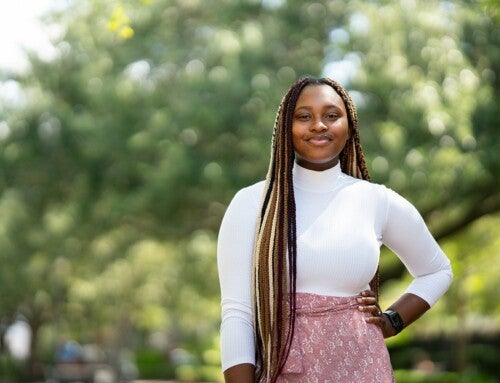By Alice Ohlandt ’21
“Commas ate the useful punctuation.” Does this sentence make sense? Sure. Is it logical? Nope. Living with dyslexia is a process of second-guessing everything I read, interrogating sentences with the fervor of the Spanish Inquisition, doubting things that make sense, and praying that when I look again, they will also be logical.
Dyslexia (a processing disorder where the words I read are omitted, added or changed) has been my most loyal companion, sticking with me my whole life. In the beginning, we used to get into knockdown drag-out fights; now, I know that it is a compulsive liar: It just can’t help itself. I know its tricks. Our vile wars have been downgraded to mere trade embargoes, and I, at last, realize commas are useful punctuation.
My unwanted companion, dyslexia, is not strictly a processing disorder; it doesn’t just change the way I read (by adding or removing words) and how I write (inverting my spelling: “ntio” instead of into) or make me mix up my left and right. It impacts how I present myself to the world – because, What if someone found out? What if I’m reading something in front of a class and half the words are missing, or I get stuck in a loop, reading the same line over, and over, and over until I’m dizzy and nauseated. But more than that, dyslexia shatters my self-expression, filling me with unfounded shame.
Reading four words can be harder than running up four flights of stairs. Even after I had learned to read, the “code” still didn’t make sense. For me, there is a disconnect, a short circuit interrupting the decryption: Snake is turned into snack, horse is house, funny is furry and six is sex.
The jumbled code from these mistakes makes Norse gods (dogs) who ride houses (horses) that have sex legs. It’s privately confusing, publicly terrifying. A mortifying daily danger. I start to shake, and sweat, and choke, and hyperventilate, until I freeze, completely losing my ability to crack the code.
And then there’s phonics – my avowed enemy. When I was learning to read at the ripe old age of 7, I had particular trouble with the “ow” sound: how, cow, plow, etc. My father, in his eminent wisdom, decided that if I could associate the sound of O+W with an exclamation of pain, my problems would be solved. So, every time I stumbled over pronouncing how, Dad would jab me in the ribs. And I would yell “Ow!” and Dad would say, “Exactly. That’s the way you say how.” “Ow” words became physically and mentally painful.
My family’s support came in many forms: Dad provided the consequences, Mom employed her degree in child development to give me strategies, and my big brother gave me the desire and even motivation to want to read. Every night he would read to me: Star Wars comics, The Hobbit and my favorite, John Flanagan’s “Ranger’s Apprentice” series, a story about an unlikely hero – too small, quiet and shy – who learned how to use his “weaknesses” to his advantage, saving his friends and kingdom. Through my brother I could explore the power of words, be transported to worlds where a person’s weakness becomes their strength, and learn that I could be the hero because of my dyslexia, not in spite of it.
My brother was the gatekeeper to my stories, teller of the ambrosial words, the conscious enabler to my stubborn aversion to reading. When the third book came out in the “Ranger’s Apprentice” series, The Icebound Land, my big brother bought it for me, kindly telling me that if I wanted to know what happened next after the second book’s cliffhanger ending, I would have to read it myself. Every night I begged and pleaded for him to read to me. I didn’t think I was smart enough to crack the code of such a big book, as daunting in size as the first “Harry Potter” book to someone who couldn’t even read The Cat In the Hat. He said no. He would help me, but not read for me anymore. His refusal might seem cruel, but he never judged me or thought less of me for not being able to read Dr. Seuss at age 10.
He recognized that reading was difficult and painful for me, something I would run away from, so he gave me the final piece I needed to break dyslexia’s code: He made me want to read. So, every night, instead of being read to, I would read with my brother. Stretched out on the floor of his room – side by side, two bibliophilists in the making at 10 and 12 – I would read my book, turning one page to his seven, leaning over to ask what a word was. I read. For the first time, I read, and nothing had ever felt so magical.
I learned that I had dyslexia when I was 15. Being homeschooled let me avoid feeling inferior but also kept me from understanding why I had such a hard time deciphering words. I knew I read a little differently; however, it wasn’t until I was out in the world more that I realized just how different I was from “normal” people. So, I resolved never to let anyone know. Never having talked about it before, I always felt the secret of my dyslexia pulling me down, drowning me in worry about who would want to hire an English major with dyslexia.
Fear not, this is no tale of woe. My college advisor, in her sympathetic, supportive way, assured me that no one would treat me differently or think differently about me because of my dyslexia. As a result, I have started to think about my dyslexia as a lifelong traveling companion, not an albatross hanging from my neck. I now treat my dyslexia as such, introducing it to the world as my companion by leaving in my horrendous spelling mistakes (ackowlages instead of acknowledges), telling my close friends about it and finally talking about dyslexia for what it really is with my family instead of ignoring it.
With my ever-present companion, my life with this trickster is no longer filled with dread or frustration. Now it’s just a journey, often to the bookstore or library. I go with my mother, who traced the alphabet a hundred times with me. My father, who jabbed me in the ribs, lovingly, and explained what words “say” when they are next to each other. And my big brother, who, more than anyone, taught me to read by teaching me to love the worlds and stories that words could create.
Alice Ohlandt ’21 just graduated with a degree in English. A competitive dressage rider, she originally wrote this essay for Bonnie Devet’s English 305 Advanced Composition class.
Illustration by Ana Aranda




